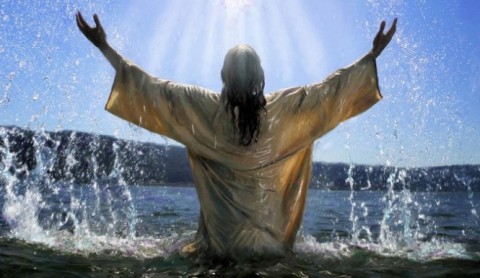
I am often guilty of having high expectations. If I allow myself to daydream too long, I conjure up grand ideas that can differ greatly from reality. The irony is that expectations, although seemingly well intended, can lead to great disappointment and discontent. In fact, we might just miss the best blessings in life when we are too consumed by our high expectations.
Recently my Sunday School class has been studying the book of Mark. The book of Mark is an action-packed, fast-paced account of the life and ministry of Jesus Christ. One of the themes we have been discussing is expectations. When Jesus began to preach and teach, He immediately attracted large crowds. He shared parables with them and performed healings in their midst. On one such occasion, Jesus commanded evil spirits who were shouting, “You are the Son of God!” not to shout and share His true identity. Why would Jesus want to keep His identity a secret? Did he not come to save us? According to our study, Jesus preferred at this point in His ministry to keep His identity a secret because He did not want to reinforce a popular misconception. The people in this time were looking for a messiah. They had long been under Roman rule, and they hoped that the prophesied Messiah would come and save them from their current military oppression. Their expectation was a military, conquering hero; a hero who would free them from their physical bondage and promote the Jews towards national supremacy. This popular idea was formed from the expectations of those whom long desired world power. Jesus was no such king. He came not to free us from military bondage, but to free us from our sins, our spiritual bondage, a freedom worth far more in the long run.
The point is this: our expectations, though often reasonably formed, can cause us to miss out on great blessings. Some of the Jews got it. They heard with their ears, and they believed. Others, however, kept buying into the idea that Jesus was the war hero they had been waiting for. Are we imposing our own expectations upon Jesus? Are we buying into any false realities that are keeping us from experiencing His true Messiahship? As William Barclay says, “Jesus saw in Messiahship a way of service, of sacrifice and of love with a cross at the end.” Once again, the Gospel takes our worldly expectations and flips them upside down. Why would God send a Messiah who would ultimately be conquered, destined to die on a cross? That was the question that the disciples were even asking. Too often we fail to see the bigger picture: Christ rose from the dead three days later, conquering the very thing that sought to conquer Him: death. Christ lives, and He lived not to wipe out armies and world nations, but to wipe out the sins in our lives so that we may have a deeper, sustaining, and saving relationship with Him. Let us not miss this blessing, the greatest blessing of all, because we are trapped by worldly expectations.





